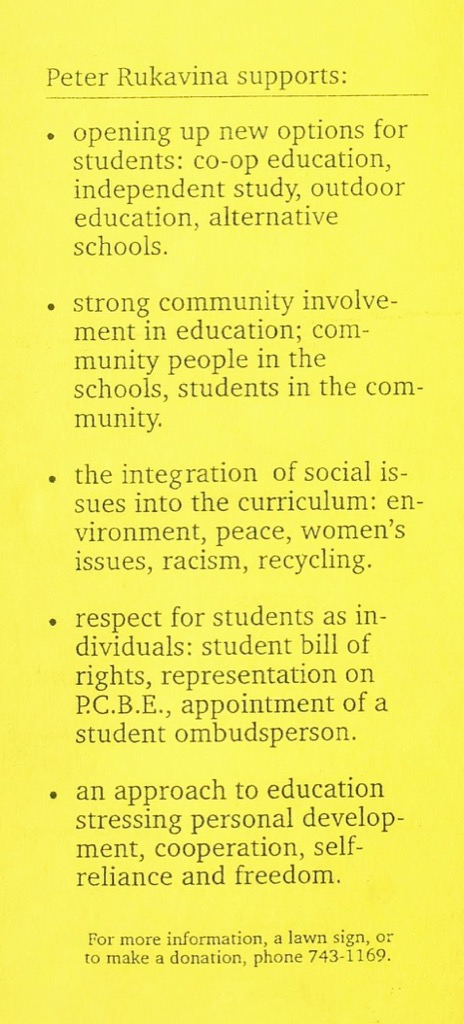One day in the late 1980s I got an urgent telephone call from my friend Simon: municipal and school board election nominations were closing that afternoon, and if I ran down to Peterborough City Hall to turn in a nomination there was a good chance I could get acclaimed.
As I was fresh off 13 years in public school, and had recently dropped out of university, I had a lot of ideas about school and education, and the chance to offer my recently-gained experiences to school board governance seemed like a good idea, so I took Simon up on his suggestion.
As it happened, there must have been many other such calls made that afternoon, as by the time nominations closed I was one of 13 candidates for 8 positions and was thus faced with the prospect of actually running an election campaign, something I had not anticipated.
I would like to be able to say that I jumped in with both feet, but I did not.
I didn’t jump in with no feet, mind you. But I realized I had no taste for door-to-door campaigning after I’d knocked on less than a dozen doors. I did, however, participate in a televised debate, I had election signs printed (by the talented Grant Fines), and I did develop a platform of sorts, preserved for history on this flyer that I recently found in a portfolio I thought long-lost:

Re-reading that platform now I’m struck with how little my ideas have evolved over the last 30 years: I might not phrase my platform the same way today, but the bedrock upon which it was based is still, mostly, the bedrock of my education thinking today. I’m pretty sure that the platform would appeal to Oliver too.
In the end I flubbed the campaign: I was awkward and dumbstruck during the debate, too shy to effectively campaign, and I ended up 13th of 13 when the ballots were counted. I don’t begrudge the experience, however, as it gave me a small window into electoral politics that has served me well when I see others putting themselves forward.
 I am
I am
Add new comment